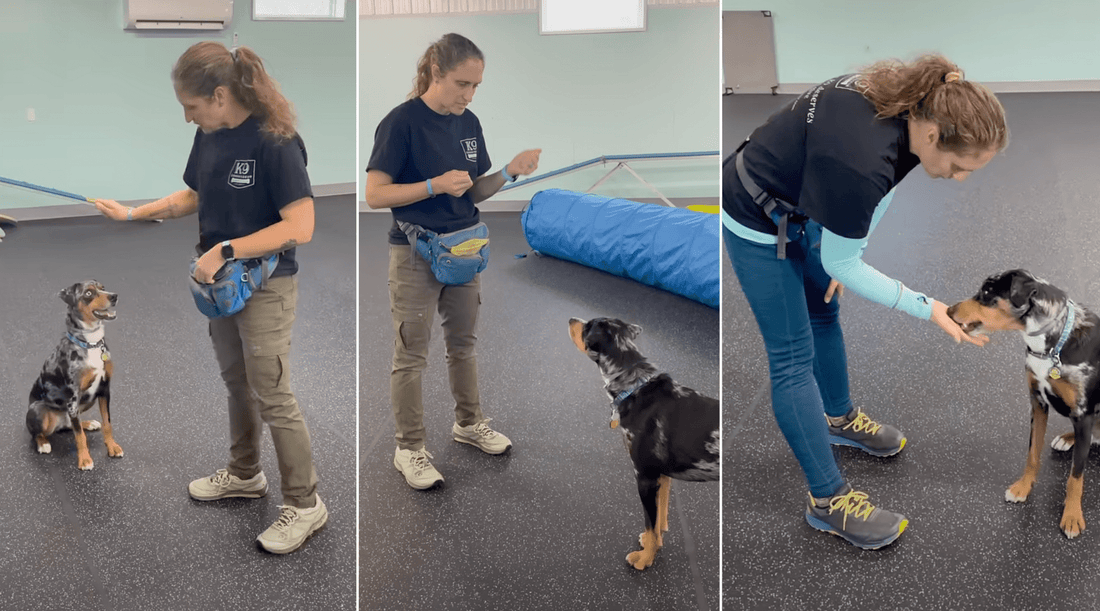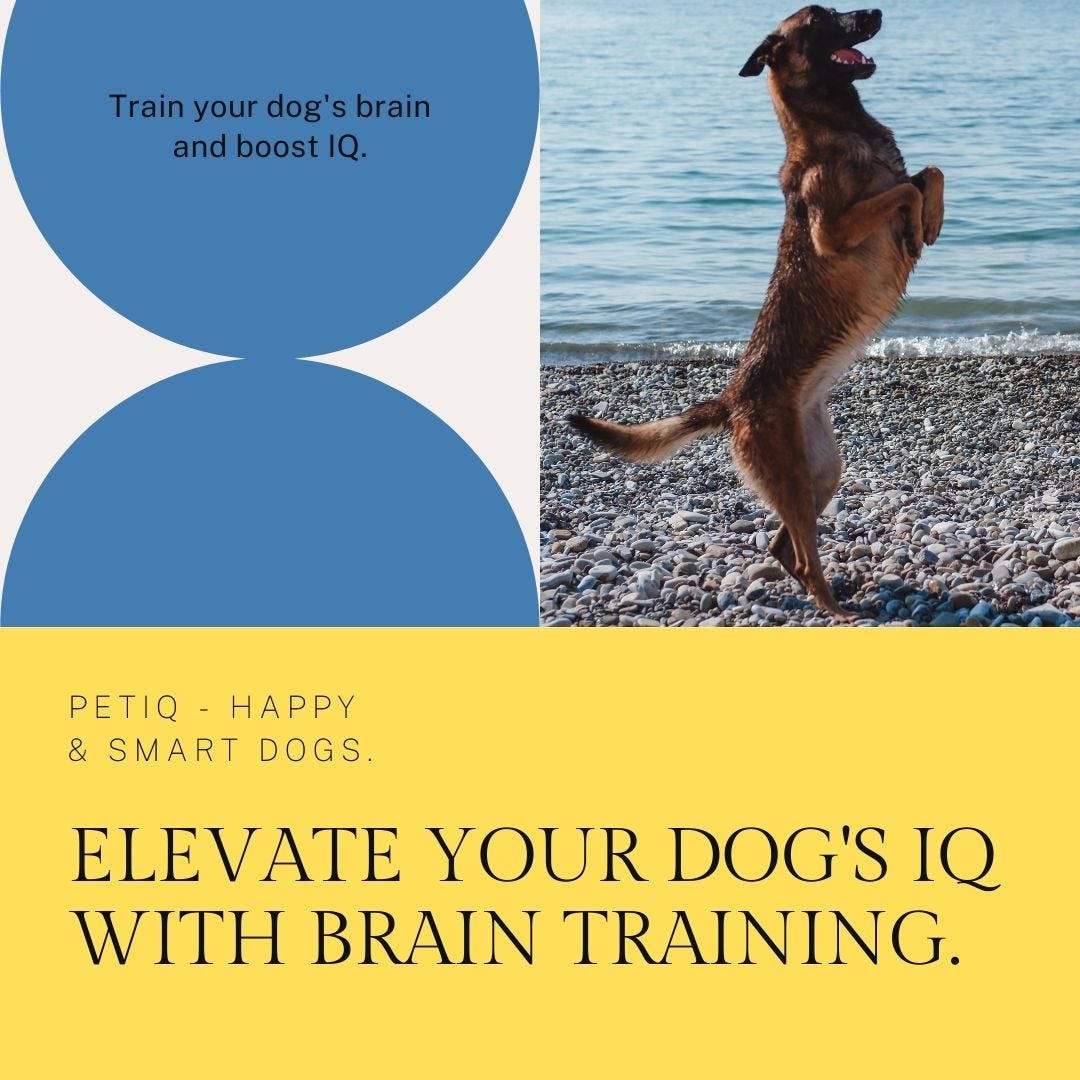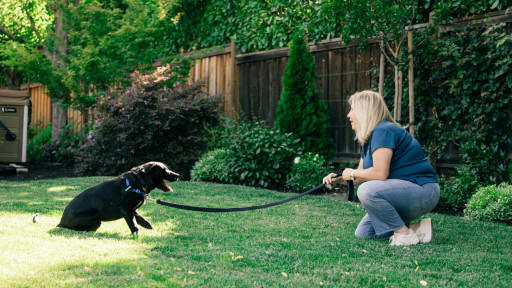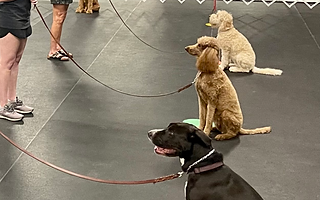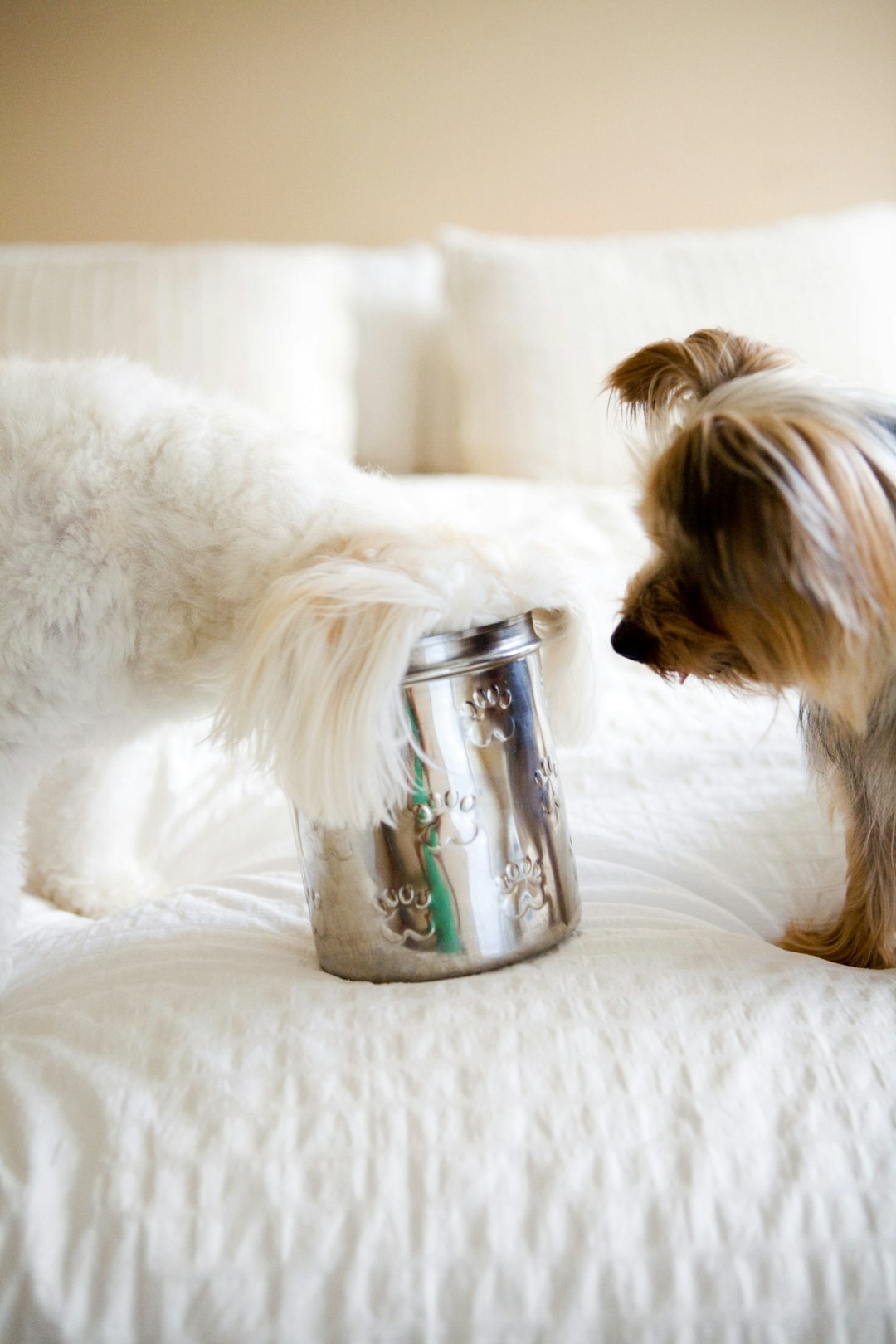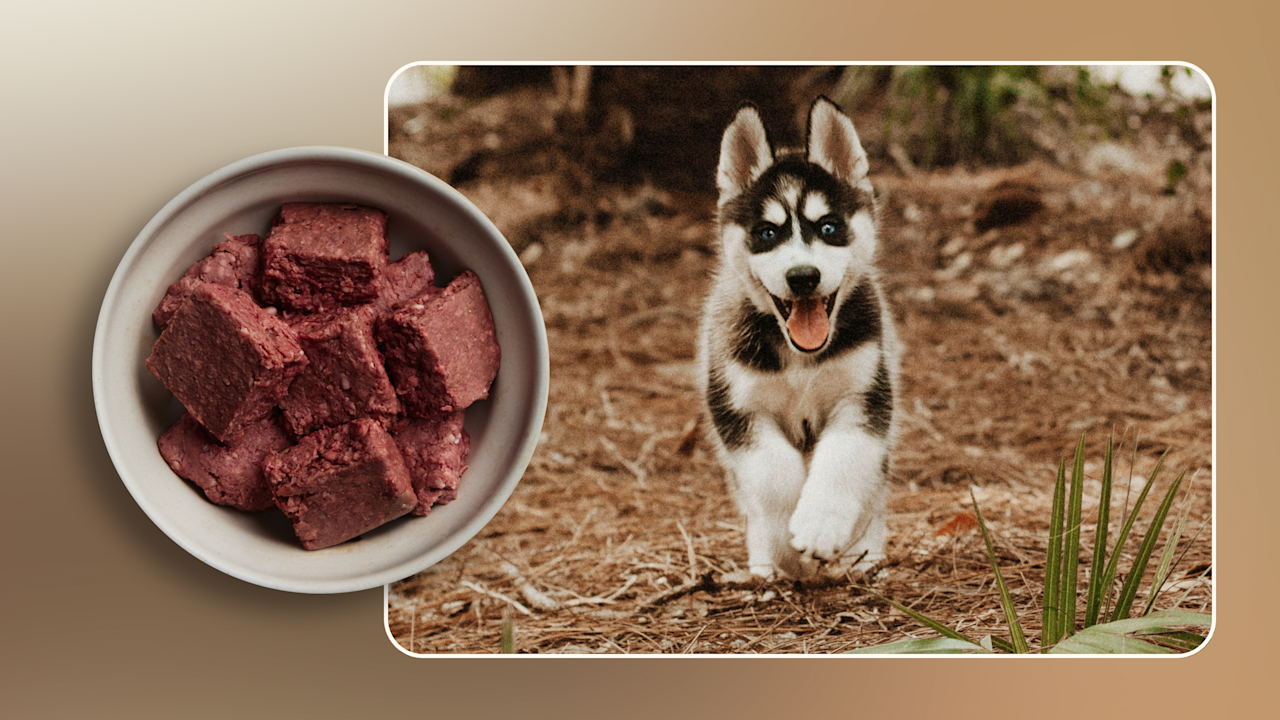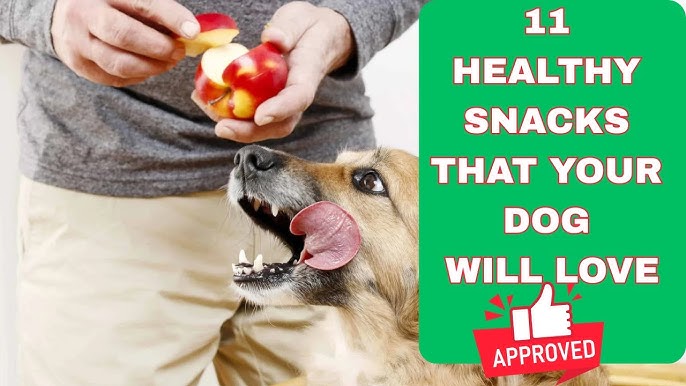You love sharing moments with your dog, and sometimes that includes sharing snacks. But have you ever wondered which human foods are actually safe and healthy for your furry friend?
Giving your dog the wrong treat can lead to upset tummies or worse. Imagine knowing exactly what snacks can boost your dog’s health and happiness without any worry. Keep reading, because we’re about to reveal the best human foods that make perfect, tasty treats for your dog—and a few you should definitely avoid.
Your dog will thank you!
Fruits And Vegetables
Fruits and vegetables can be excellent snacks for your dog. They offer essential vitamins, fiber, and hydration without the extra calories. Including these natural treats in your dog’s diet can keep snack time healthy and enjoyable.
Apples
Apples are crunchy and sweet, making them a favorite for many dogs. They provide vitamin A and C, which support your dog’s immune system. Just remember to remove the seeds and core before giving apple slices to your pup.
Carrots
Carrots are great for dogs who love to chew. They help clean teeth naturally while being low in calories. You can serve them raw or cooked, but raw carrots keep the crunch that many dogs enjoy.
Blueberries
Blueberries are small but packed with antioxidants. They make perfect bite-sized treats you can toss during training sessions. Have you ever noticed how excited your dog gets chasing after these tiny fruits?
Pumpkin
Pumpkin is a fantastic source of fiber and helps with digestion. You can offer plain cooked pumpkin or canned pumpkin puree without additives. A spoonful of pumpkin can soothe your dog’s tummy and add variety to their snacks.

Credit: za.pinterest.com
Proteins And Dairy
Proteins and dairy products can be excellent snack choices for your dog when given in moderation. They provide essential nutrients that support muscle health, energy, and overall well-being. However, you need to choose the right types and serve them safely to avoid digestive issues.
Chicken
Plain, cooked chicken is a fantastic protein snack for dogs. It’s lean, easy to digest, and most dogs find it irresistible. Just make sure it’s free from seasoning, bones, and skin to prevent choking hazards and stomach upset.
Have you noticed how your dog perks up when you offer a bit of cooked chicken? That’s a great way to keep training sessions exciting and healthy.
Eggs
Eggs are a nutrient powerhouse for your dog, packed with protein and essential amino acids. You can serve them boiled or scrambled without any butter or salt. Raw eggs aren’t recommended due to the risk of salmonella and biotin deficiency.
Adding an egg occasionally can boost your dog’s coat and energy. Ever tried mixing a scrambled egg into their regular food? It’s often a hit.
Cheese
Cheese can be a tasty, high-protein treat that many dogs love. Opt for plain, low-fat varieties like mozzarella or cottage cheese. Be cautious with portions, as too much can cause digestive upset or contribute to weight gain.
Does your dog enjoy cheese as much as mine? Using small cheese pieces can make rewarding good behavior easier and more effective.
Yogurt
Plain, unsweetened yogurt is a good source of protein and probiotics, which support digestion. Greek yogurt works well because it has less lactose and more protein. Avoid flavored yogurts with added sugars or artificial sweeteners that can harm your dog.
Have you tried offering your dog a spoonful of yogurt? It can soothe their stomach and freshen breath, making it a functional snack beyond taste.
Grains And Legumes
Grains and legumes offer excellent snack options for dogs when chosen wisely. They provide essential nutrients like fiber, vitamins, and protein, which support your dog’s digestion and overall health. However, not all grains and legumes are safe, so knowing which ones to feed can make a big difference.
Rice
Rice is a gentle grain that many dogs enjoy. It’s easy to digest and often used in homemade dog food recipes to soothe upset stomachs.
You can serve plain cooked white or brown rice as a healthy treat or mix it with other dog-friendly foods. Just avoid adding salt, spices, or oils that could harm your pet.
Oatmeal
Oatmeal is a fantastic source of soluble fiber, which helps regulate your dog’s digestion. It’s also rich in vitamins like B and minerals such as iron.
Cook plain oatmeal in water without sugar or flavorings before offering it to your dog. Have you noticed how some dogs love the chewy texture of oats? It can be a great alternative to dry kibble snacks.
Peas
Peas are small legume snacks packed with protein, fiber, and vitamins A, K, and C. Many commercial dog foods include peas because they support muscle health and immune function.
You can give your dog fresh or frozen peas as a crunchy treat or mix them into meals. Just make sure to avoid canned peas with added salt or preservatives.
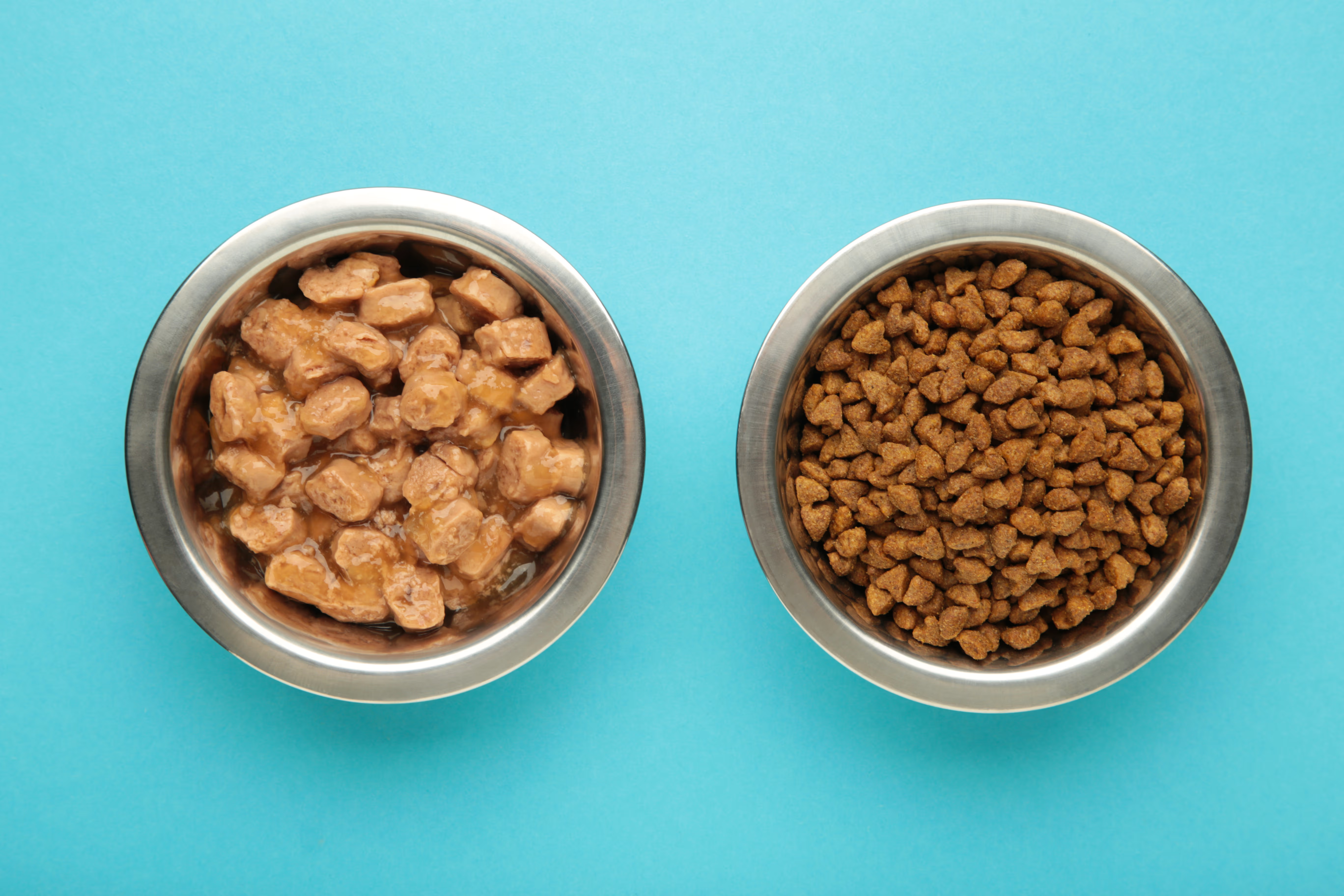
Credit: www.petco.com
Snacks To Avoid
Knowing which snacks to avoid is just as important as knowing what’s safe for your dog. Some human foods can cause serious health problems, even in small amounts. Let’s look at a few common snacks that you should never share with your furry friend.
Chocolate
Chocolate contains substances called theobromine and caffeine, which are toxic to dogs.
Even a small piece of chocolate can cause vomiting, diarrhea, and rapid breathing in your dog.
Dark chocolate and baking chocolate are especially dangerous because they have higher levels of these toxins.
Have you ever noticed your dog begging for chocolate? It’s best to resist giving in, no matter how cute they look.
Grapes
Grapes and raisins can cause sudden kidney failure in dogs.
Symptoms may not appear immediately but can be severe and life-threatening.
It’s safer to keep grapes completely out of reach, even if your dog seems uninterested.
Would you risk your dog’s health for a few grapes? It’s a risk that’s not worth taking.
Onions
Onions contain compounds that can damage your dog’s red blood cells and cause anemia.
This danger applies to raw, cooked, powdered, and even dried onions.
Symptoms like weakness and breathlessness may show up days after onion ingestion.
If you cook for your dog, be cautious about hidden onion ingredients in sauces and seasonings.
Serving Tips
Serving snacks from your own food stash to your dog can be a delightful experience for both of you. However, it’s important to approach this carefully to keep your furry friend safe and healthy. Proper serving tips ensure your dog enjoys the treat without any unwanted side effects.
Portion Control
Even healthy snacks can add up in calories quickly. Keep portions small to avoid upsetting your dog’s stomach or causing weight gain.
Think of snacks as occasional treats, not meal replacements. A few small pieces of apple or carrot can be enough to make your dog happy without overdoing it.
Watch your dog’s reaction after giving a new snack. If you notice any changes in energy or digestion, reduce the amount or skip that snack altogether.
Introducing New Foods
Introduce new snacks slowly to see how your dog handles them. Start with tiny bites and wait 24 hours to check for any allergic reactions or digestive troubles.
Use this time to observe your dog’s preferences. Dogs, like people, have tastes—some might love a bit of peanut butter, while others prefer plain boiled chicken.
Ask yourself: Is this snack making your dog happy and healthy? If not, try a different option or consult your vet for recommendations.

Credit: www.facebook.com
Frequently Asked Questions
What Human Snacks Are Safe For Dogs To Eat?
Dogs can safely eat plain fruits like apples, bananas, and blueberries. Vegetables such as carrots and green beans are also good. Always avoid toxic foods like chocolate, onions, and grapes. Moderation is key to prevent digestive upset and keep your dog healthy.
Can Dogs Eat Peanut Butter As A Snack?
Yes, dogs enjoy peanut butter in moderation. Choose unsalted, xylitol-free peanut butter to avoid toxicity. It provides protein and healthy fats. Use it as a treat or to hide medicine, but avoid excess to prevent weight gain.
Are Fruits A Healthy Snack Option For Dogs?
Fruits like apples, blueberries, and watermelon are healthy dog snacks. They provide vitamins, antioxidants, and hydration. Remove seeds and cores before feeding. Avoid toxic fruits like grapes and cherries. Always introduce new fruits gradually to monitor for allergies.
Is It Safe To Give Dogs Cooked Vegetables?
Cooked vegetables like carrots, green beans, and sweet potatoes are safe for dogs. Cooking makes them easier to digest. Avoid seasoning or oils. Vegetables add fiber and nutrients to your dog’s diet. Serve in small, bite-sized portions.
Conclusion
Giving dogs safe human snacks can be a nice treat. Choose foods like carrots, apples, or plain cooked chicken. Avoid anything toxic like chocolate or grapes. Always watch your dog’s reaction to new snacks. Keep portions small to prevent stomach upset.
Healthy snacks support your dog’s happiness and health. Treat your dog with care and love every day. Simple choices make a big difference. Your dog will thank you with wagging tails and joy.

